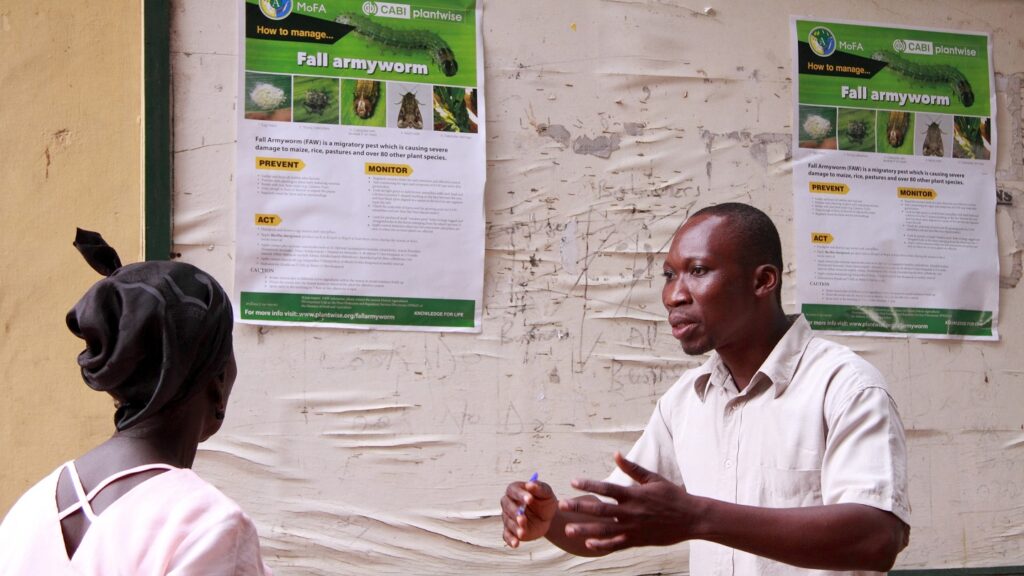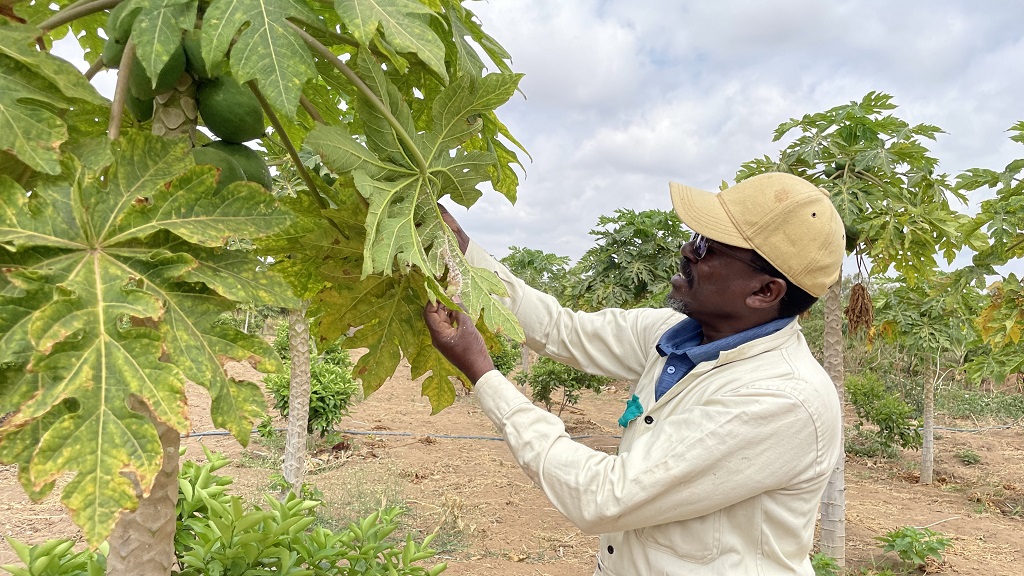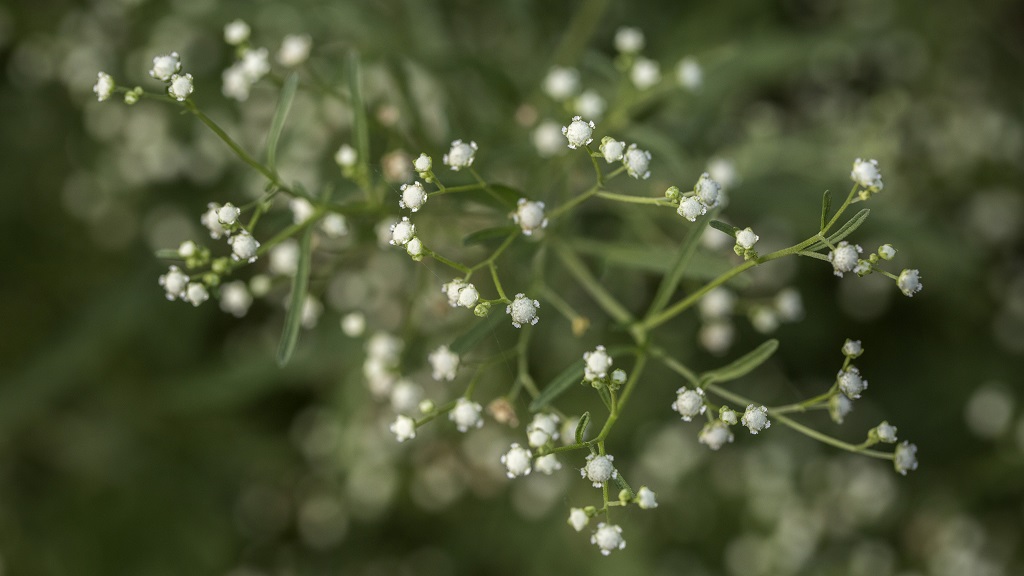Parasitic wasps play pivotal role in Kenya’s papaya mealybug control
Papaya mealybug (Paracoccus marginatus) is a devastating papaya pest. It impacts many countries in East and West Africa. Infestations can result in significant economic losses, posing a threat to the livelihoods of smallholder farmers. On average, the pest can cause anywhere from 53% to 100% crop losses, costing £2,224 per hectare annually. Its impact on…
PlantwisePlus most read blogs of 2023
As 2023 draws to a close, we have tallied the numbers to present the most-read articles on the PlantwisePlus Blog this year. Plus a few firm favourites. Articles on the new PlantwisePlus tools and courses were some of the most read during 2023, as well as other blogs on key topics like one health and…
CABI study unearths important lessons for the fight against fall armyworm
A study by CABI contributes important knowledge on fall armyworm (Spodoptera frugiperda). CABI’s research findings suggests that employing more sustainable and environmentally friendly solutions could help mitigate the damaging impacts of the species.
Biocontrol agent released to safeguard crops from parthenium weed in Pakistan
Invasive plants can be extremely harmful to crops. “Famine weed” or parthenium is one such plant. Native to tropical America, it was accidentally introduced to several countries. In Pakistan, the weed now covers thousands of hectares of agricultural and rangeland. And it poses an economic burden to farmers.










